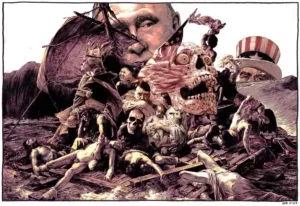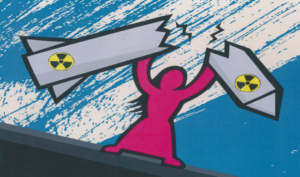Who drives Washington’s wars of aggression and outrageous military spending?
To be fair, the Nuland-Kagan mom-and-pop shop is really only a microcosm of how the Military-Industrial Complex has worked for decades: think-tank analysts generate the reasons for military spending, the government bureaucrats implement the necessary war policies, and the military contractors make lots of money before kicking back some to the think tanks — so the bloody but profitable cycle can spin again.











